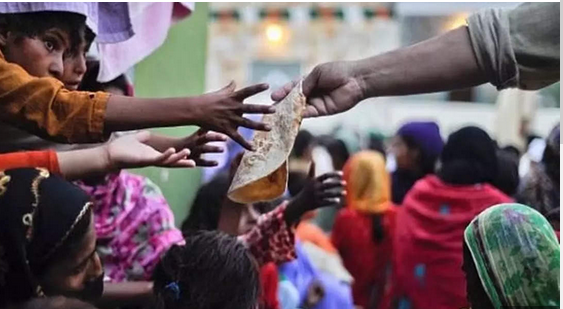Methodology of Global Hunger Index has been rightly criticised
Almost every year, in October, the publication of the Global Hunger Index (GHI) precipitates an aggressive push-back by the government. This year, too, the report that ranks India 111 among 125 nations — a fall of four places from last year — has elicited an angry reaction from the Union Ministry of Women and Child Development. In what seems a reiteration of its response last year, the ministry has said: “Three of the four indicators used for calculation of the index are related to the health of children and cannot be representative of the entire population. The fourth and most important indicator estimate of the proportion of the undernourished population is based on an opinion poll conducted on a very small sample size of 3,000.” Scholars have also argued that the GHI is a poorly designed measure of hunger. Such criticisms are valid . But they should not divert policymakers ’ attention from the persistent problem of poor food intake .
Undernutrition is one of the bleak spots of India’s development story. The National Food Security Act, 2013 made it incumbent on the state to provide basic cereals and grains to ensure that people do not go-hungry . Schemes such as Poshan 2.0 seek to address the challenges of malnutrition in children, adolescent girls and pregnant women. However, technical glitches , bureaucratic hurdles, social and economic inequalities and gender discrimination prevent a large number of people from accessing these benefits. Among the troubling statistics of the National Family Health Survey (NFHS) 5 is the one that relates to child nutrition: It found that 89 per cent of children between the formative ages of 6-23 months do not receive a “minimum acceptable diet’’ — marginally better than the 90.4 per cent recorded in NFHS-4. The survey also flagged high rates of anaemia across large sections — children below six years, adolescent girls and boys and women between 15 to 49 years, including pregnant women.
In recent years, scholars have directed attention to the limitations of calorie intake-centred approaches. They have underlined the importance of addressing vitamin and micro-nutrient deficiency and alerted policymakers to the importance of women’s empowerment . Conversations on nutrition could become richer with more granular data on household consumption. However, the country has not had an official estimate on per capita household spending in more than 10 years. The government junked the Consumer Expenditure Surveys (CES) of 2017-2018 and the results of CES 2022-23 are not yet public. The Centre is right in critiquing the GHI. But that should not diminish the significance of the nutrition challenge. As a first step, it must bolster its information repositories .
